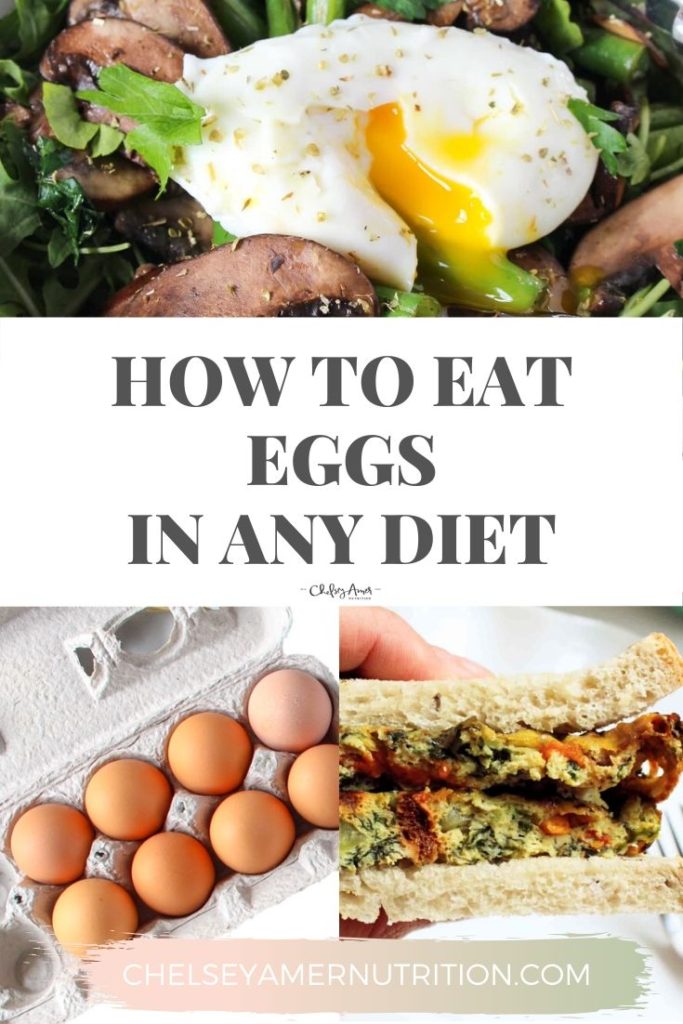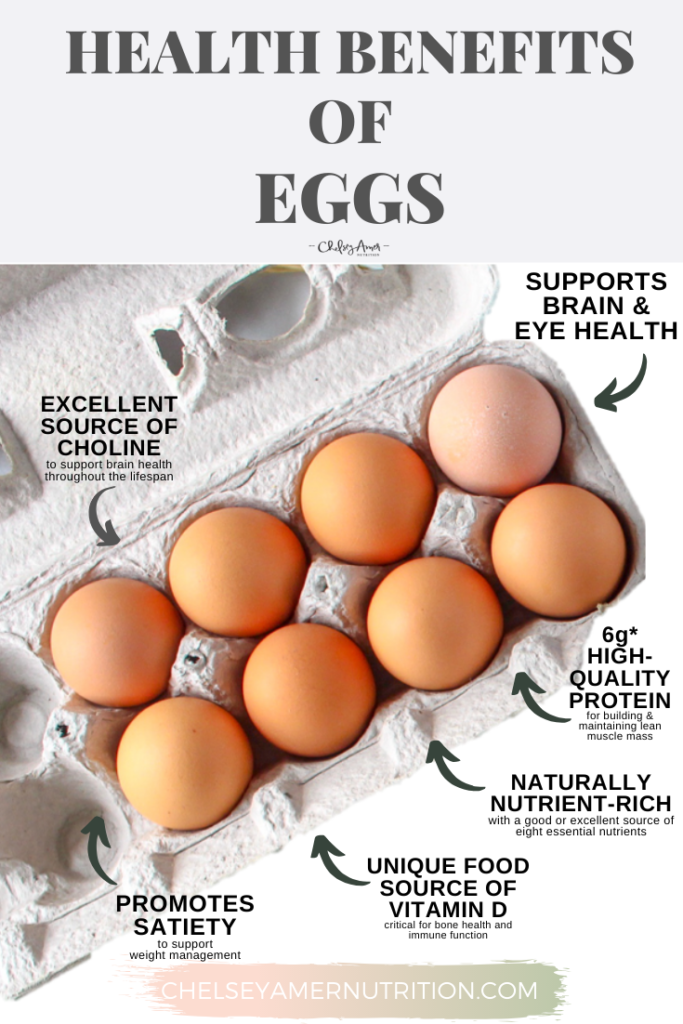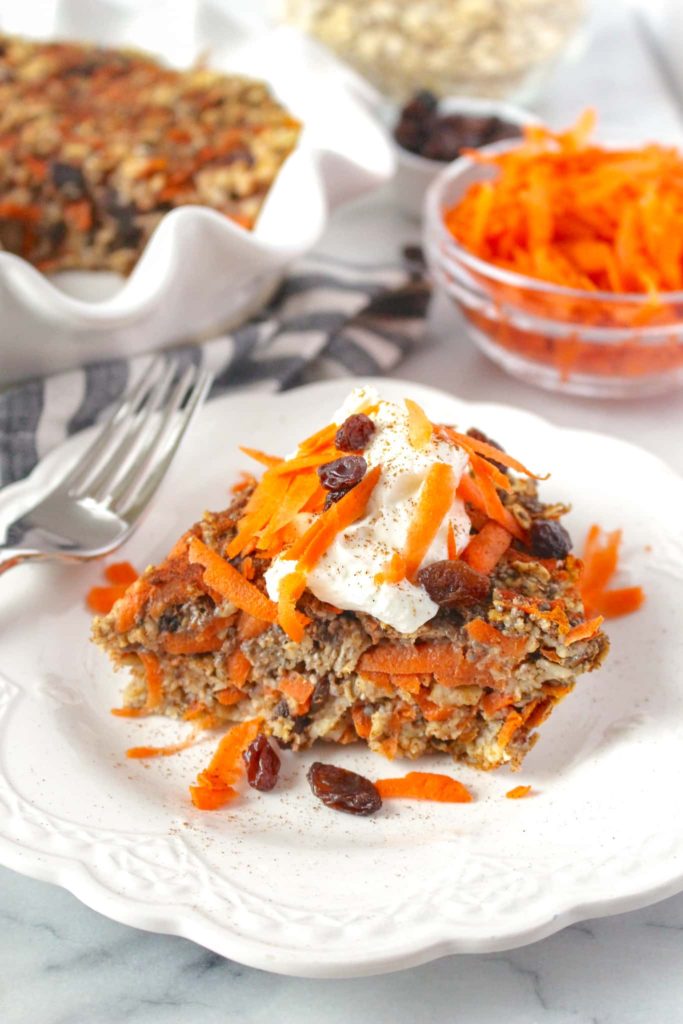How Eggs Fit Into Nearly Any Diet
Eggs are not only naturally nutrient-rich but they’re versatile and easy-to-use too. Learn more about the health benefits of eggs and how eggs fit into nearly any diet from a heart-healthy eating plan to a plant-based lifestyle.

Disclaimer: This post is sponsored by the Egg Nutrition Center. Thanks for supporting the brands that make the Chelsey Amer Nutrition blog possible!
There aren’t many foods with the versatility of eggs. From breakfast through dessert, and any meal in between you can find a great use for eggs.
Nutritionally speaking, eggs are a nutrient-rich powerhouse!
One large egg has:
- 70 calories
- 6 grams of high-quality protein
- a good or excellent source of eight essential nutrients including choline, vitamin B12, biotin, iodine, riboflavin, and more
- 1 mcg of Vitamin D
Not only are they packed with nutrients, but they’re easy to use, cost-effective, and can play a role in brain health, eye health, weight management, muscle maintenance, and pregnancy.

Plus, eggs fit into nearly any dietary pattern!
The best eating plan for you promotes good health and is one you can stick to. Luckily, eggs can fit into nearly any diet.
From scrambled to poached, fried, baked, and everything in between, let’s see how eggs fit into different dietary patterns:
Mediterranean Diet
The Mediterranean Diet consistently ranks at the top of “best diets” to follow. The Mediterranean diet emphasizes fresh produce, healthy fats (like nuts, seeds, and olive oil), whole grains, fish, eggs, some dairy, and even red wine. Studies have shown that following the Mediterranean diet can lower your risk of heart disease, help manage diabetes, and even increase longevity.
I don’t view the Mediterranean Diet as a diet per se… it’s more of an eating style that amalgamates healthy eating and lifestyle principles amongst countries along the Mediterranean Sea.
A common principle is focusing on fresh, whole foods, close to their source. Eggs fit right in!
Here are some Mediterranean Diet recipes featuring eggs:
- Warm Mushroom and Green Bean Salad is topped with a poached egg, which oozes as the dressing.
- Salmon Nicoise Salad is made with omega-3-rich salmon, crisp green beans, and hard boiled eggs.
Heart-Healthy Diet
Contrary to what many believe, eggs can fit into a heart-healthy eating pattern! For many years, it was thought that the dietary cholesterol in foods such as eggs increases blood cholesterol levels, but quality research has debunked this previously held thought and more recent guidelines say eggs can be beneficial part of heart-healthy diets.
In fact, a recent science advisory from the American Heart Association outlines some important recommendations when it comes to eggs and heart-healthy eating patterns:
- Healthy individuals can include up to a whole egg daily in an overall healthy diet
- Vegetarians (lacto-ovo) may include more dairy and eggs in their diets in moderation
So, what is a heart-healthy diet? A heart-healthy diet is similar to an overall well-balanced diet. It emphasizes plenty of vegetables, fruit, and whole grains to boost fiber intake, plant proteins, lean animal proteins, omega-3 fatty acid-rich foods, and healthy fats, including nuts and seeds.
Try these recipes that fit into a heart-healthy diet:
- Carrot Cake Baked Oatmeal contains fiber-rich oats and chia seeds
- Dairy Free Spinach and Artichoke Frittata contains prebiotic-rich artichokes, which may help maintain a healthy gut

Plant-Based Diet
One of the biggest misconceptions about plant-based diets is that they’re “plant only” diets. Instead, think of plant-based diets as plant-forward and plant-heavy, but including a wide-variety of foods.
Plant foods pair well with eggs because the fat in eggs helps you absorb the fat-soluble vitamins found in produce, including vitamins A, D, E, and K.
Add an egg (any style) to these plant-based dishes for a protein-boost:
- Italian Quinoa Salad is made with quinoa, white beans, artichokes, and roasted bell peppers. Adding an egg boosts the protein to help you stay full longer, and adds important nutrients like choline.
- Shredded Brussels Sprouts Salad contains brussels sprouts, which are an excellent source of fat-soluble vitamin K. Adding an egg on top will help you better absorb this key nutrient.
Gluten-Free Diet
Individuals who must follow a gluten-free diet can lean on eggs as a potent source of protein. By pairing eggs with fiber-rich starchy carbohydrates, it’s easy to create well-balanced meals.
Here are some gluten-free meal ideas:
- Tuna Nicoise Stuffed Potatoes contain tuna and eggs mixed with salad and stuffed into a filling baked potato
- 2-Ingredient Egg Muffins are a great make-ahead breakfast to grab and go on busy mornings. Pair with a piece of fruit to add filling fiber.
Don’t Forget to PIN IT…

As you can see, eggs fit into nearly any diet thanks to their versatility! What’s your favorite way to eat eggs?
XO


 Hi there!
Thanks for stopping by! I'm Chelsey, an online Registered Dietitian, recipe developer, budding photographer, and coffee addict! My mission is to help you feel good through food by answering the question "What should I eat?" Let's make nutrition approachable!
I hope you enjoy my personal collection of simple, healthy, food allergy friendly and nutritiously delicious recipes, plus tips and tons of tricks that will help YOU live a nutritionally-balanced life! I look forward to getting to know you better...
Hi there!
Thanks for stopping by! I'm Chelsey, an online Registered Dietitian, recipe developer, budding photographer, and coffee addict! My mission is to help you feel good through food by answering the question "What should I eat?" Let's make nutrition approachable!
I hope you enjoy my personal collection of simple, healthy, food allergy friendly and nutritiously delicious recipes, plus tips and tons of tricks that will help YOU live a nutritionally-balanced life! I look forward to getting to know you better...







